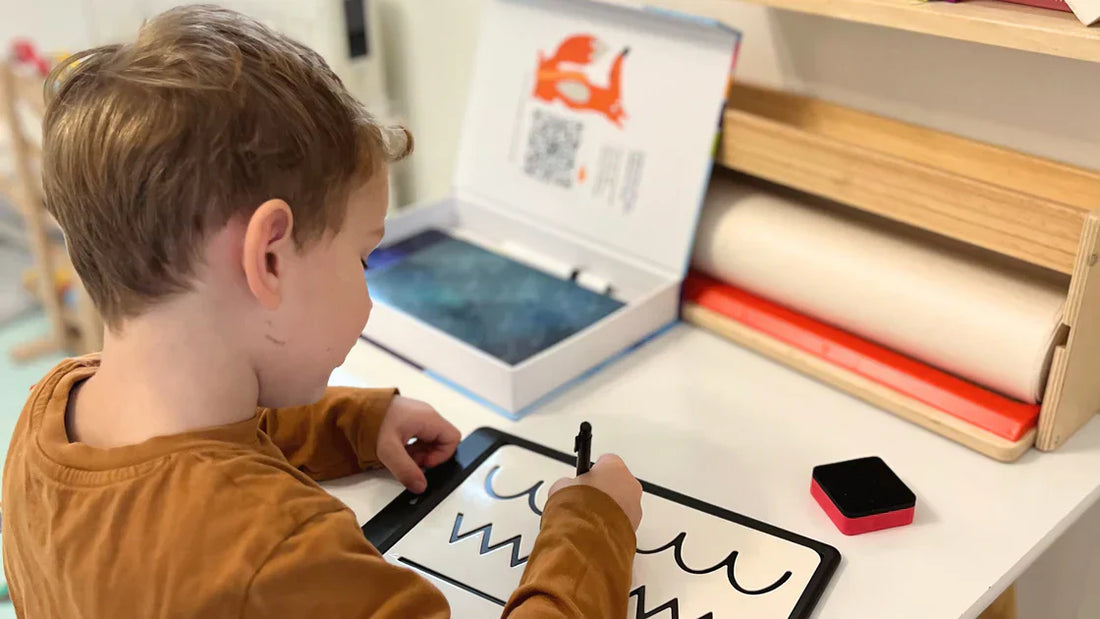
Back-to-School Without Stress: A Psychologist’s Advice on Helping Children Cope with the Post-Holiday Transition
Share
Returning to school or kindergarten can be a source of tension for both children and parents. How can you manage the shift from the free rhythm of summer holidays back to everyday duties? In this interview, psychologist Mgr. Mária Spodniak Červenáková shares practical tips, rituals, and small tricks that help children feel safe, cope with separation anxiety, and even look forward to the new school year.
Summer is ending, and many parents (and children) are starting to feel a slight tension about going back to kindergarten or school. From a psychological point of view, how do children experience this transition?
For children, switching from the “considerable freedom” of holiday mode back to school or kindergarten is a bit like when your favourite Sunday evening film ends, and you suddenly realise that tomorrow morning the alarm will ring before six… Psychologically, it’s a change in environment, rhythm, and expectations. And every change brings not only excitement but also mild uncertainty. Younger children may be more sensitive to separation, while older ones may worry about fitting in with classmates or managing a “heap” of new lessons and subjects. The key here is to acknowledge their feelings – not to downplay them, but also not to dramatise them.
What about your home? Do you have any tried-and-true rituals or habits that help you cope with the return after the holidays?
At our home, we use a “planner of small joys” – for example, breakfast of choice (even if that means pancakes on a Monday morning), choosing clothes together, and a bedtime story about what’s coming the next day. Each week, we also write down something we’re looking forward to, so we can see that life after summer still has its charm. And it works for me too – if I know I’ll have a peaceful coffee on Friday, I can survive a more turbulent Monday morning 😊.
When is it a good idea to start preparing a child for the return to school/kindergarten? And what does that involve?
Ideally, a week or two before the start of the school year. Not in the form of “counting down the days to D-Day” as if it were a surgery (we don’t want to make school/kindergarten into a “bogeyman”), but gently, sensitively, and with respect. We slowly change the sleep schedule, shift the morning wake-up time and bedtime, and talk about friends and teachers at school/kindergarten. Most importantly, we present the return to the school environment as something positive – not as “the end of the world.”
What would you recommend to parents – how can they encourage children actually to look forward to the new school year?
As I mentioned earlier, connect school with positive experiences – friends, play, new adventures. Add small joys, such as a new pencil case, lunchbox, or water bottle the child chooses themselves. There are endless options. To help bridge the first days, you can create a “festive back-to-school week” where each day the child gets a little surprise at home – for example, in our family, it might be a shared game (chosen by the child), baking pizza or a favourite cake/pancakes together, going for ice cream, or an afternoon trip to visit relatives. Children genuinely look forward to these little things, so it’s important not to forget them.

What role does open communication about expectations play? Should parents talk about school with children proactively, or wait until they ask questions themselves?
I’m in favour of “gentle” prevention. Not in the form of a lecture, but as a conversation during play or while driving. For example: “Who are you looking forward to seeing in kindergarten?” or “What would you like to be different this year?” This way, the child feels we are listening and interested in their feelings. When the topic comes up naturally, they already feel it’s a safe environment where they can open up and talk.
A very current topic is separation anxiety, especially in younger children. What can parents do if a child doesn’t want to go to school in the morning or cries?
Stay calm (I know, easier said than done when you’re holding a crying child instead of a coffee). The goodbye should be short and loving – a kiss, a hug, maybe a secret high-five ritual (this is our every-morning combo). Long explanations and persuading often increase anxiety and are counterproductive. What helps us is reminding our little boy that something nice will be waiting for him in the afternoon (a small surprise), and of course, keeping that promise. And in the evening, we don’t revisit difficult mornings with an interrogation – we let the child talk spontaneously.
Are there any practical tips or activities that help children feel safer and more confident at school or kindergarten?
Yes, definitely – a small “talisman” (mini plushie, comfort toy, or other favourite item) that reminds them of home. Also, a clear agreement: “I’ll pick you up after snack time.” And in the evening at home, keep routines – family dinner, bedtime story, hug. These repeating moments are like a “beacon of security” for children.
After a relaxed summer routine, getting back into a regular daily schedule is challenging for both children and parents. How would you recommend setting the routine so it’s not a shock?
As I mentioned earlier – gradually. By mid-August, we start going to bed earlier, waking up earlier, having breakfast at home (not on the way in the car), and the day regains its “skeleton” – a more structured rhythm. At the same time, we insert “small joys” so the routine doesn’t become synonymous with boredom.

How can we help children get used to early mornings and going to bed on time again? Does it make sense to “train” a few days in advance?
Yes – and it will save your nerves 😊! Shift bedtime gradually, for example, by 15 minutes each day, and add a little morning ritual with a fun twist, like a dance-alarm. Believe me, it works better than saying “wake up” five times!
What would you say to parents who feel like they can’t cope – whose child cries every day, breaking their heart?
That it’s completely normal to feel this way. That they are not alone. And that most children adapt faster than we think, even if the first days seem endless. The important thing is to hold boundaries with love and trust the child to manage. Children borrow our confidence until they develop their own.
Do you have a favourite thought or rule you follow as a psychologist and mother when it comes to big changes in children’s lives?
“Small steps lead to big changes.” I don’t try to make everything perfect immediately – it’s enough to take one step in the right direction today. And I believe that even when it feels challenging, the child is learning resilience that they will one day use to their advantage in much more demanding situations.
Created as inspiration for parents


